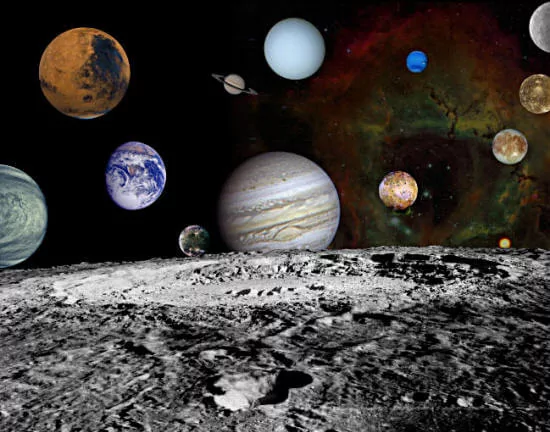Click on one of these astrology planets to skip down to its description:
Astrology is about observing the planets. This is not to say that the planets (or the signs) cause anything to happen. What we observe is synchrony – that things are taking place in sync. One movement is flowing throughout our space, heavens, and Earth. Instead of causing, the planets indicate things, describing what is already taking place. But for the sake of convenience, astrologers use phrases like, “your Venus makes you like this,” or “his Mars made him act like that.” Please note that this is only for convenience in communicating. Astrologers know that the planets don’t force us to do anything, any more than your 5:00pm clock forces you to stop working. But you do stop working when the clock strikes 5:00pm, don’t you? And so you pay careful attention to that clock, because that clock will show you when it’s time to go home from work. But the clock never forced you to leave work, neither did it ever seal your fate. In the end, you decide when to leave work. That is the beauty of synchronicity.
As has been mentioned, the Sun and the Moon are included when we say “the planets.” Astrologers do this for convenience. The ten planets of astrology are: Sun, Moon, Mercury, Venus, Mars, Jupiter, Saturn, Uranus, Neptune, and Pluto[1]. (From our geocentric position, Earth is not included in the list; however Earth's interplay in the scheme of things is denoted by the Ascendant.) However, before the 18th century only the first seven planets were recognized (they were perceivable to the naked eye): Sun, Moon, Mercury, Venus, Mars, Jupiter, and Saturn. Since over 2,000 years ago, the seven classical planets were observed to keep time, orbiting steadily on their paths. Perhaps that is why the number seven was symbolic of deity in ancient cultures. The seven were named after Greek gods because their influence was considered to be as such. Seven was the number of days chosen for a week, with each day borrowing its name from one of the classical planets. (The days making up our calendar month were determined based on one complete cycle through the 12 zodiac signs by the moon, from which the word "month" comes from.)
The discoveries of Uranus, Neptune, and Pluto corresponded to revolutionary changes in our world, from the Industrial Revolution and discovery of electricity (Uranus), to the financial collapse and interest in world domination of the 1930’s (Pluto). Pluto’s demotion of status to a “dwarf planet” does not change the fact that it is a celestial body participating in the continuous flow of energy in our world. Thus, Pluto is included here as a planet. (Astrology also observes several other asteroids/planetoids, regardless of planetary status. The body is there, thus, it counts.)
Each planet symbolizes a different component of life, a different type of energy. In psychological terms, we can call them “needs” or “drives.” Click on the astrology planets above to learn what each one brings to astrology.
Notes
1. See Why Pluto is still valid even though it’s not a planet anymore
✶

The Sun
“I am”
Best quality: Rulership
Worst quality: Dictativeness
The sun represents your ego, the inner you, your essence, the unchanging part of you – the calm, steady, deep and lasting force felt within you, enabling you to exert willpower, make decisions and direct all the other parts of you life. The Sun represents your will, and its sign determines the dynamic expression of the will, which is carried out through the activity of the other planets in the horoscope. Remember, the sun sign is just the start of your portrait. Think of your horoscope as a painting of you. The characteristics of your Sun sign are the first broad strokes that the artist first lays down on the canvas. The artist outlines your general shape, the planes and angles of your face, the way in which you hold your body. In the same way, your sun sign delineates your fundamental character, your core. Are you introspective? Do you make friends easily? Are you pompous or plain, generous or greedy? How do you cope with responsibility? Are you high-strung or easygoing? The answers may be found in a study of your Sun's position by sign and house, and any aspects from it.
Interpretations for the Sun in each zodiac sign are available here: Sun in the Signs
Interpretations for the Sun in each House of the birth chart: Sun in Houses
✶
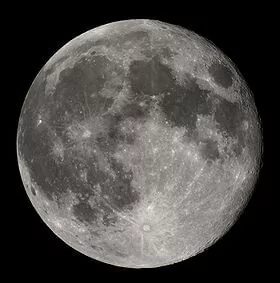
The Moon
“I feel”
Best quality: Adaptability
Worst quality: Inconstancy
The Moon is as important as the Sun in your natal chart. The Sun sign is a part of you that is apparent to others; it is what others see. The Moon sign is the part of you that you see. The Moon represents your emotional nature and instinctive reactions – emotional responses based on past experiences and unconscious habit patterns that you have developed. It comprises all the little surface peculiarities, moods, and changes that have to do with physical life which are disturbing, fleeting, and changing. It describes the way you behave in instances in which you haven’t had time to think things through, your immediate emotional responses. Have you ever done something that you immediately regretted and thought, “that’s not like me.” It may have been your Moon sign qualities at work. The sign that the Moon is in shows what makes you feel emotionally nurtured, secure, and satisfied. Because emotions run so deep, the Moon sign represents your greatest need. It also shows how you nurture others. Most of the time, your Moon sign will only be apparent to those who live with you, or people that are very close to you. In many ways, your Moon personality is the one you keep hidden. It is your inner core, which feels hate, jealousy, fear, and has fantasies that you often deny even to yourself. On the other hand, it is your Moon personality that spontaneously feels and expresses joy and pleasure. It is the part of you that enjoys the little sensualities of life. The Moon in your horoscope modifies your Sun sign; it brings new forces, different motivations, and spiritual elements to the character of your Sun sign. For example, a Gemini-Sun person with Moon in Taurus will be more dependable than a Gemini-Sun with Moon in Aquarius. Here is another reason why we cannot define a person simply by their Sun sign.
The Moon is also a symbol of fertility and femininity; its sign colors one's relationship with the mother, and with women in general. In a male's chart, it indicates the type of woman he feels most comfortable with. Although the Venus sign indicates a male's romantic/erotic preference in partners, the Moon sign indicates the type of woman he would choose as a lifelong mate (because the Moon "needs" are stronger than the Venus "wants").
The Moon is constantly waxing and waning, from new Moon to full Moon and back. The house position of the Moon in your natal chart shows the area of life where you tend to be the most emotional, and where you often experience changing conditions. The house of the Moon also gives clues to the type of activity that occurs on the domestic scene.
Interpretations for the Moon in each zodiac sign are available here: Moon in the Signs
Interpretations for the Moon in each House of the birth chart: Moon in Houses
Return to Top Return to Cancer
✶
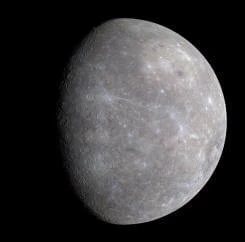
Mercury
“I think”
Best quality: Expression
Worst quality: Restlessness
Mercury is the planet of intelligence and communication. It governs our rational and intellectual faculties, perception and reason, memory, speaking, and writing. Mercury reflects your capacity to collect, sort, and communicate the knowledge you gain through your experiences and your senses. It reflects the way you see, hear, understand, and assimilate information. Mercury is symbolic of that child-like curiosity that drives your urge to know, and the ability to analyze and reason. Mercury also has to do with transportation and short trips, and the nervous system. The positive manifestations of Mercury include clever speech, eloquence, persuasiveness, success with public speaking and a sharp, quick mind. The more negative manifestations include restlessness, a tendency to be critical, sarcastic, argumentative and sly. The quick wit of Mercury can quickly turn into trickery. Lies, deceit, fraud, swindling, and forgery are examples of Mercury’s negative power. The sign of Mercury in your natal chart shows your style and preferences of communicating and learning. A strong Mercury in one's chart, free of any negative aspects, indicates a brilliant mind.
Interpretations for Mercury in each zodiac sign are available here: Mercury in the Signs
Interpretations for Mercury in each House of the birth chart: Mercury in Houses
Return to Top Return to Gemini Return to Virgo
✶

Venus
“I love”
Best quality: Affection
Worst quality: Pliancy (bending too easily, taking the easy way out)
Venus is the planet of love, pleasure, and beauty. It represents your capacity to express affection and to enjoy beauty. This includes your capacity to attract and appreciate the things of the world, whether they are emotional, physical/material, mental, or spiritual things. It defines the type of people you draw to yourself, based on your social values. Things ruled by Venus include: what kind of sex appeal you posses, love affairs, the arts, beauty and beautiful things, adornment, affection, the social graces, harmony, and friendship. Being the planet of pleasure, it points to the kinds of amusements you are drawn to and in what ways you spend your money. The position of Venus in your natal chart can answer such questions as: What kind of lovers do you attract? Are you flirtatious? Do you find happiness in your love affairs, or are you often disappointed? Where do your creative talents lie? The sign of Venus gives important information about how you expresses yourself in personal relationships, especially in love and marriage. It also indicates your attitude toward money, personal possessions, creature comforts, and social and aesthetic values. Your Venus sign also reveals your idea of the "perfect woman." In a male's chart, the Venus sign indicates the type of woman that attracts him. In a woman's chart, the Venus sign indicates the qualities that she uses to attract lovers. The house position of Venus indicates the type of people with whom you establish relationships, both friendships and romances, and where you are most likely to find an artistic outlet.
Venus never travels far from the Sun. In your horoscope, it is always either in your Sun sign or in one of the two signs immediately preceding or following your Sun sign. A well-aspected Venus bestows charm, diplomacy, and tact. Some negative manifestations of Venus are self-indulgence, jealousy, envy, lust, and of course, unfaithfulness.
Interpretations for Venus in each zodiac sign are available here: Venus in the Signs
Interpretations for Venus in each House of the birth chart: Venus in Houses
Return to Top Return to Taurus Return to Libra
✶
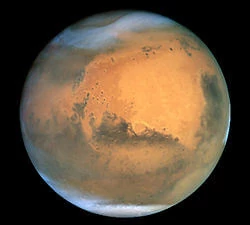
Mars
“I act”
Best quality: Initiative
Worst quality: Harshness
Mars is the exact opposite of Venus. Whereas Venus represents the female, Mars is all male. Whereas Venus is about harmony, Mars is conflict, aggression, and outright war. Mars is the planet of physical energy. It governs your sex drive, your forcefulness and your aggression. It is associated with your desires and aspirations for emotional, physical, mental and spiritual things that stimulate activity. You have to want something before you reach out and take it; Mars is the heated passion behind action. Mars shows your ability to turn ideas into action. The sign of Mars in your natal chart indicates your vitality, energy level, and style of action. In a female's chart, the Mars sign is one factor suggesting the type of man she attracts. In its highest form, Mars represent your unleashed energy and your human will – initiative. A controlled Mars can give a healthy dose of assertiveness and ambition. At its worst, Mars energy makes one prone to anger, harshness and destructive violence, impulsive behavior, danger, combativeness and every kind of cruelty. It’s up to you to use this force constructively.
Interpretations for Mars in each zodiac sign are available here: Mars in the Signs.
Interpretations for Mars in each House of the birth chart: Mars in Houses
✶
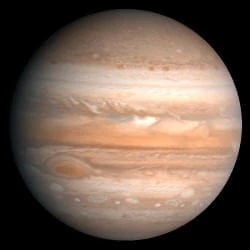
Jupiter
“I grow”
Best quality: Benevolence (kindness)
Worst quality: Conceit
Jupiter is the planet of good luck, optimism, success and generosity. Jupiter brings joy to life. Think expansiveness and abundance, as Jupiter is the largest planet in our solar system. Jupiter signifies knowledge, higher learning, breadth of vision, confidence, charity and good-will, frankness and honesty. Jupiter’s knowledge is on a philosophical level (as opposed to Mercury’s day-to-day cleverness). It is the broad view of the higher mind. Psychologically, Jupiter is the search for meaning or truth. As such, it represents law and justice, philosophy, religion, metaphysics, and education. Jupiter encompasses the urge for self-improvement through participation in the larger whole. It urges you to go forth exploring life. Jupiter's sign indicates what you idealize, what your ethical, religious, and philosophical standards are. The sign also indicates where you express expansiveness, where you do things on a large scale. Jupiter in your chart shows where you are likely to receive financial and material benefits, and in turn, where you express generosity to others. The House of Jupiter is where we tend to be optimistic, and the affairs of that House usually flow easily. Jupiter’s qualities include benevolence (kindness), wisdom, morality, and spirituality. If negatively placed in the chart, Jupiter’s energy can be manifested as self-righteousness, excessiveness, squandering, exaggeration, over-indulgence, superficiality, and bigotry. However, even when negatively positioned, Jupiter is protective and beneficial. Over-indulgence and excess often lead to learning the lesson of restraint. Even with a negatively-aspected Jupiter, a person will tend to "land on their feet" when problems arise in the areas signified by Jupiter's House.
Interpretations for Jupiter in each zodiac sign are available here: Jupiter in the Signs
Interpretations for Jupiter in each House of the birth chart: Jupiter in Houses
Return to Top Return to Sagittarius
✶
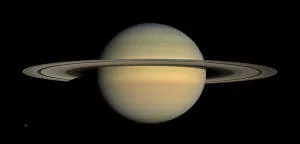
Saturn
“I achieve”
Best quality: System and Organization
Worst quality: Selfishness
Astrologers of the past regarded Saturn as "evil" and malignant, indicating dire misfortune and misery wherever it was found in a chart. When Venus wishes for love, Saturn denies her. When Jupiter promises good fortune, Saturn delays it. When Mercury brings news, Saturn degrades it, and when Mars goes too hard or too fast, Saturn will crash him. But this is not necessarily bad. Saturn is associated with the principles of limitation, restrictions, boundaries, safety, practicality, reality, seriousness, and structures. Saturn is the laws, boundaries and limits set by society or karma. Modern astrologers acknowledge that the hardships brought on by Saturn's limitations, compel one to continue striving for a final product, that although delayed, will be solid and of real worth.
Saturn governs ambition, career, authority, hierarchy, and conforming social structures. It concerns a person's sense of duty, discipline and responsibility, and their physical and emotional endurance during hardships. Saturn is morose and cold, melancholic, and serious. By placement in your chart, it indicates the area of life in which you may feel shame, for a time. This is the area where you have lessons to learn. But this is where your disciplined hard work will lead to genuinely earned, long-lasting success. At its best, Saturn endows organization and order. At its worst, Saturn’s energy is manifested as selfishness. The sign of Saturn also gives clues to the kind of work for which a person is suited and the kind of career he is likely to pursue.
Interpretations for Saturn in each zodiac sign are available here: Saturn in the Signs
Interpretations for Saturn in each House of the birth chart: Saturn in Houses
Return to Top Return to Capricorn
✶

Uranus
“I evolve”
Best quality: Originality
Worst quality: Rebellion
Uranus represents the unconscious urge to become aware of your true inner individuality (the Sun). Like a lightning bolt, Uranus symbolizes sudden flashes of insight, moments of revelation, and spurts of creativity. Uranus’s energy is usually described as suddenness, revolution, change, shock, and disruption. Like lightning, Uranus breaks into time and fractures our patterns. New ideas break into ordinary streams of thought, bringing innovative solutions to stubborn problems. It is your intuition awakening you to a world beyond our social structure. Uranus forces sudden changes when the usefulness of the old is gone and something newer, something higher and better is ready to take its place. Uranus encompasses technology and all types of electronic devices. Uranus speeds up the mind, making it to bypass logic and arrive at conclusions by leaping from A to Z, shocking people. Uranus seeks alternatives to the common and accepted forms. True to itself, the planet Uranus stands out from the rest of the planets by orbiting around on its "side." The rest of the planets orbit like a "spinning top," but Uranus insists on rolling on its side like a ball. At best, Uranus encourages originality, versatility and independence. At worst, it encourages eccentricity, perversion and rebellion. Uranus demands freedom.
Interpretations for Uranus in each zodiac sign are available here: Uranus in the Signs
Interpretations for Uranus in each House of the birth chart: Uranus in Houses
Return to Top Return to Aquarius
✶
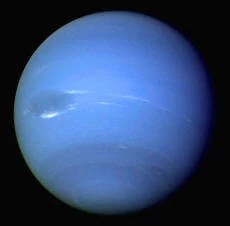
Neptune
“I dream”
Best quality: Idealism
Worst quality: Vagueness
Neptune represents the unconscious urge to dissolve the boundaries of your ego-centeredness in order to ‘lose yourself’ in other realms of being. While Uranus breaks into our dimension to allow momentary flashes of insight into other realms of existence, Neptune is those other realms. Neptune dissolves life’s patterns in order to teach new meanings in the quest for universal wisdom. Neptune represents things that aren’t quite as they appear, the illusive, and the unreal. It is the planet of receptivity, imagination, cloudiness, confusion, delusion, illusion, and unreality. Neptune is also associated with movies, acting, and compassion. Neptune can indicate mystical visions of a divine creator, or an experience of the primordial chaos before creation (dangerously, the latter can drive one to madness). Neptune can indicate spiritual healing and service to others, or becoming lost in a foggy world of fantasy and dreams. More often than not, Neptune indicates confusion in the House where it resides in your birth chart. A negatively positioned Neptune in the natal chart can indicate a tendency to escape reality. The house and sign will indicate whether it be through mind-altering drugs and alcohol, day-dreaming, sexual addiction, cult worship, psychosis, potential suicide, or others. At its best, Neptune's energy inspires marvelous art, music, theatre, dance, poetry, and film. Above all, Neptune represents the intangible, and makes it very real.
Interpretations for Neptune in each zodiac sign are available here: Neptune in the Signs
Interpretations for Neptune in each House of the birth chart: Neptune in Houses
Return to Top Return to Pisces
✶
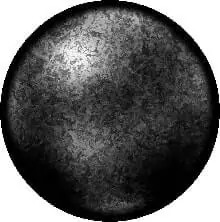
Pluto
“I empower”
Best quality: Transformation
Worst quality: Inversion (turning things upside down)
(See Why Pluto is still valid even though it’s not a planet anymore)
Pluto represents the unconscious urge to transform repressed ego-desire energies into group-desire energies in order to live out your role in society’s evolution. Pluto represents sexuality (the act itself, as opposed to the energetic desire which is associated with Mars), obsessive desires, transformation, power, and the ingredients of great wealth (investments, banking, loans, debt, mortgages). Pluto has dominion over drastic changes that bring true upheavals. Since Pluto is the slowest-moving planet, an entire generation will share the same Pluto sign, giving it historical importance. Drastic and permanent changes in civilization as a whole can be linked to Pluto's movement through the signs. On a personal level, the House that Pluto occupies in your chart will show how Plutonian energy is manifested in your life. Pluto will transform those things in your life that require regeneration, whether you desire it or not. You may experience dramatic crises or have to endure terrible suffering where Pluto is involved in your chart, but for the purpose of healing. Pluto tears down only to transform and regenerate what has been destroyed. Pluto is associated with recklessness, mental obsession and compulsion, emotional resistance, and overall transcendence. It is also associated with unsolved mysteries, secrets, and taboos.
Interpretations for Pluto in each zodiac sign are available here: Pluto in the Signs
Interpretations for Pluto in each House of the birth chart: Pluto in Houses
 ⌕
⌕










